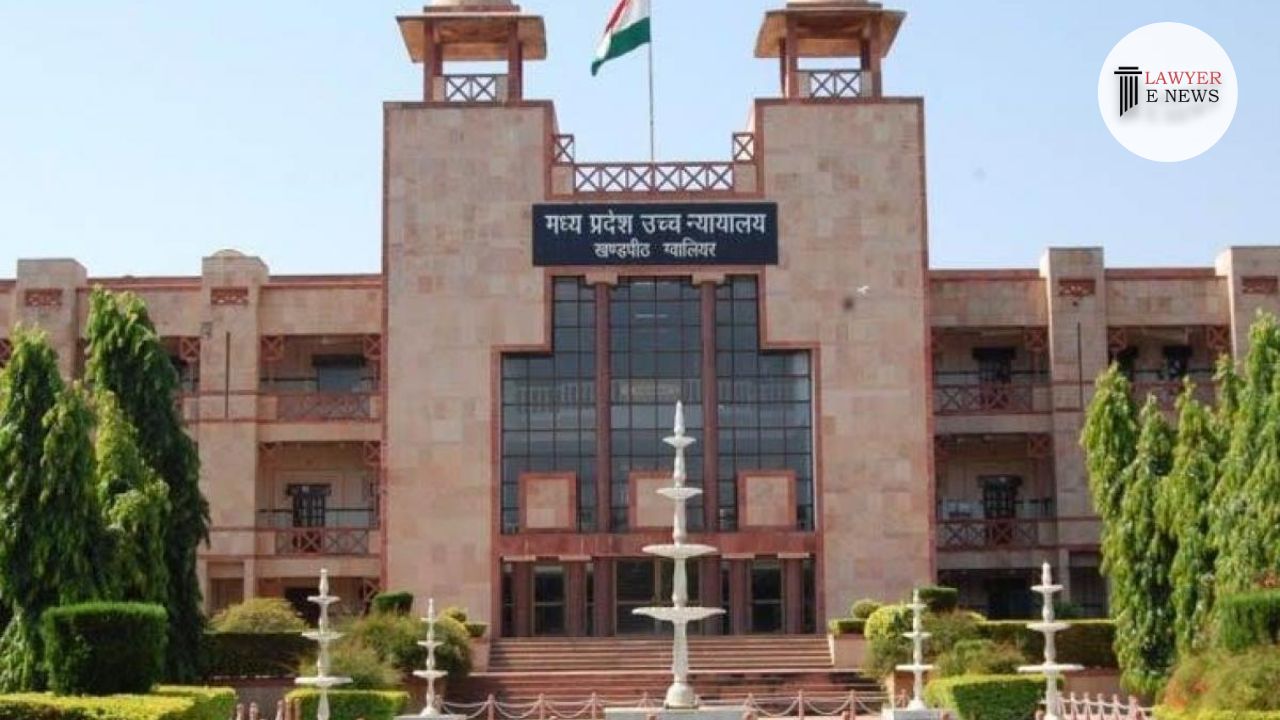-
by Admin
15 February 2026 5:35 AM



In a significant decision, the Madhya Pradesh High Court has cancelled the allotment of premises to the Madhya Pradesh High Court Advocates Bar Association within the High Court campus, emphasizing the necessity for transparent and objective criteria in such administrative decisions. The judgment, delivered by a bench comprising Justices Vivek Agarwal and Avanindra Kumar Singh, underscores the importance of adherence to principles of justice, equity, and legal recognition in administrative actions.
Lack of Transparent Criteria: The Court critically examined the procedural compliance in the allotment of the premises. “There was neither any policy for allotment of such space nor any established rules or procedures,” observed the bench. The absence of a transparent process in the allotment was a key factor in the Court’s decision to cancel the allotment, highlighting the need for established criteria to avoid arbitrariness.
Legal Entity Recognition: The legal status of the Madhya Pradesh High Court Advocates Bar Association was a significant point of contention. The Court upheld the State Bar Council’s decision to deny recognition to the association, citing that only recognized bar associations are entitled to claim facilities. “The principle of ‘One Bar One Vote’ must be adhered to, ensuring no parallel unrecognized bodies enjoy patronage without legal sanctity,” the Court stated.
Administrative Discretion and Judicial Review: The judgment delved into the discretionary powers of the Chief Justice in the allotment of public property. The Court found that such discretion must be exercised within the bounds of transparency and fairness. “Any allotment must be founded on sound, discernible, and well-defined policies,” the bench emphasized, referring to established judicial principles.
Justice Vivek Agarwal remarked, “The decision to allot public space must not be arbitrary or on the sweet will of any authority but must adhere to the principles of transparency, objectivity, and legal compliance.”
The Madhya Pradesh High Court’s decision to revoke the allotment of premises to the Madhya Pradesh High Court Advocates Bar Association sets a precedent for ensuring fairness and transparency in administrative decisions involving public property. By reinforcing the necessity for legal recognition and adherence to established procedures, the judgment affirms the judiciary’s commitment to upholding justice and equality. This ruling is expected to have significant implications for future administrative actions, ensuring that they are conducted within the framework of law and equity.
Date of Decision: 3rd May 2024
Amit Patel vs. High Court of Madhya Pradesh & Ors.
